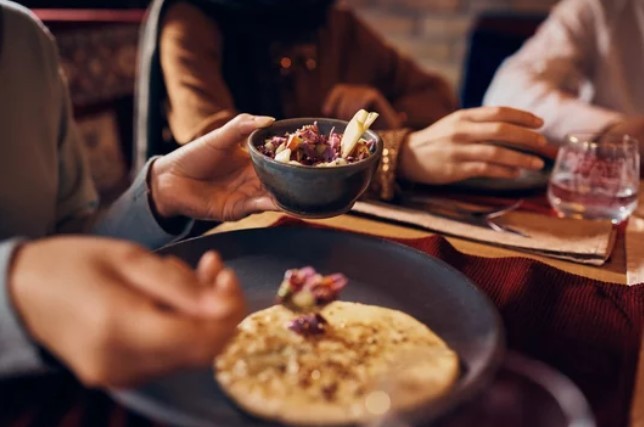Today is Ramadan Mubarak! As we celebrate the joyous festival of Eid al-Fitr in 2023, let’s explore its significance and customs. As the holiest month, Ramadan is a time of fasting, prayer, and spiritual reflection for Muslims around the world. During this month, Muslims abstain from food, drink, and other physical needs from dawn until sunset, and devote their time to prayer, Quranic recitation, and acts of charity.
As the month of Ramadan comes to a close, Muslims look forward to celebrating the joyous festival of Eid al-Fitr. This special occasion is a time of immense happiness and gratitude, as families and friends come together to share in the blessings of the season. In this article, we will explore the significance of Eid al-Fitr and the various traditions and customs associated with this joyous festival.
Ramadan, the ninth month of the Islamic calendar, is considered the holiest month in the Islamic faith. During this month, Muslims around the world observe fasting, prayer, and other religious rituals. The end of Ramadan is marked by a three-day festival known as Eid al-Fitr, which is one of the most important celebrations in the Muslim calendar. In this article, we will provide an overview of the celebration of Eid al-Fitr and its significance.
Eid al-Fitr, which means “festival of breaking the fast,” is a time of great joy and celebration for Muslims. It marks the end of a month-long period of fasting, spiritual reflection, and self-discipline. The festival is celebrated on the first day of Shawwal, the 10th month of the Islamic calendar, and begins with the sighting of the new moon.
The celebration of Eid al-Fitr is characterized by several customs and traditions. One of the most important of these is the Eid prayer, which is performed in congregation in the morning of Eid day. Muslims dress up in new clothes and gather in mosques or outdoor spaces to perform the prayer, which is followed by a sermon delivered by the imam.
Ramadan Mubarak! – A time for forgiveness and reconciliation

After the prayer, Muslims exchange greetings of “Eid Mubarak” or “Blessed Eid” and hug each other, expressing their joy and happiness at the end of Ramadan. This is also a time for forgiveness and reconciliation, as Muslims seek to resolve any disputes or misunderstandings they may have had with friends and family.
Eid al-Fitr is also a time for feasting and celebration. Muslims prepare special dishes and sweets to share with family, friends, and neighbors. This is also a time for charity and giving, as Muslims are encouraged to give gifts and donations to those in need.
The significance of Eid al-Fitr goes beyond just the celebration of the end of Ramadan. It is a time for Muslims to reflect on their faith and renew their commitment to living a virtuous life. As the Prophet Muhammad (peace be upon him) said:
“When the month of Ramadan comes, the gates of Paradise are opened and the gates of Hellfire are closed, and the devils are chained.” (Sahih Al-Bukhari)
This hadith (narration) reminds Muslims of the spiritual significance of Ramadan and the importance of striving to do good deeds throughout the year. Eid al-Fitr is also a time to celebrate the diversity and unity of the Muslim community, as Muslims from different backgrounds and cultures come together to celebrate this important occasion.
Eid al-Fitr is a time of great joy and celebration for Muslims around the world. It marks the end of a month-long period of fasting, spiritual reflection, and self-discipline, and is a time to renew one’s commitment to living a virtuous life. As we celebrate this important occasion, let us remember the words of the Prophet Muhammad (peace be upon him):
“Whoever fasts Ramadan with faith and seeking his reward from Allah will have his past sins forgiven.” (Sahih Al-Bukhari)
May this Eid al-Fitr bring joy, peace, and blessings to all Muslims around the world. Ramadan Mubarak!






